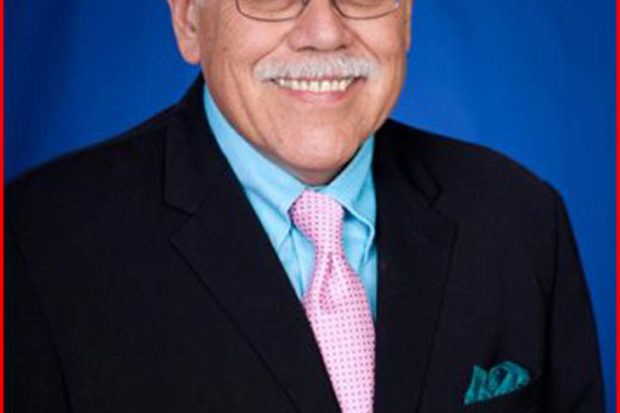
By Richard Stone
Sal Quintero walks me back to his office, and immediately it’s clear it is not like those of the Fresno City Council members I’ve previously interviewed. More a den than an office, every inch is covered with memorabilia of Fresno landmarks and events, pictures of sports stars and celebrities who’ve passed through town, auto replicas and toys.
Quintero is not an all-business straight-ahead policymaker like the other Council members I’ve spoken with. He presents himself not as one trying to make his mark on the city but rather as a veteran at ease with himself and his position—this is, after all, his third term (eight years in office, eight off abiding by term limits—when he acted as Mike Dages’ chief of staff, then reelected in 2010). He has, all told, served in City Hall continuously since 1995.
He practices the old model of politics by relationship and connection, where the emphasis is unambiguously on serving the nuts-and-bolts needs of his district. His focus is on getting streets repaired and new businesses established rather than on citywide issues like development policy.
Quintero also has deep roots in the community he represents, which is Fresno’s District 5 anchored in the southeast part of the city. He has lived there virtually all his life and believes the historical perspective he brings is one of his chief assets. “I remember when the Council was chosen in citywide elections. In fact, the change to district elections is what made me feel I could possibly win a seat—though it took me three times to make it.” He says that his motivation to run was precisely the lack of responsibility that he’d previously experienced for the poorer minority-preponderant district he lived in.
Although the district remains beset by economic woes and underdevelopment, Quintero believes progress is slowly occurring. He is proud of having helped establish the “Ventura/Kings Canyon Corridor” as a redevelopment area, accessing money to redo streets and lighting and installing below-ground fiber. (Comcast chose a school in District 5 to try out a special program of Internet access for its students.)
Quintero also sees the recent opening of several small businesses in empty storefronts as a positive sign. But his optimism is really fueled by the prospect of a major shopping/residential complex, being developed by the people who did River Park, in the vicinity of Clovis and Tulare. “They say, having learned from that first try, this will be even better,” he enthuses. He adds that state grants for infrastructure will also enhance existing services to nearby neighborhoods.
Quintero is not as impressed as Council Members Oliver Baines and Blong Xiong (his frequent allies) were, in my interviews with them, by the collegiality of the current Council. He takes to heart being often on the losing end of 5-2 and 4-3 votes, feeling unable to have the pressing needs of his district properly attended to.
His most serious discontent is with the “Strong Mayor” form of city governance that has been in place since 1996—or at least as it has been carried out by those in power. He says that with the City Manager hired by the Mayor and department heads accountable only to the City Manager, he has been repeatedly frustrated by an inability to have his district’s basic needs like code enforcement and maintenance attended to. “I can call, but I get no answer.” He is especially concerned that a regional park to serve southeast Fresno has been postponed indefinitely.
Although Quintero is encouraged by the collaborative “people’s movement” that defeated Measure G last year (the move to privatize garbage collection), he feels he has little access to Mayor Ashley Swearingen. “We’ve only met face-to-face three or four times,” he says, adding “and when we met to talk about developing the Fulton Mall, she was intent on her own agenda and wouldn’t even hear out my alternative plan.”
As might be expected from his focus on specific needs, Quintero was a bit sketchy about more abstract issues like oversight of police use of force or homelessness—sympathetic but without corrective plans in mind. He is certain though, about Fresno’s greatest asset: ethnic diversity. “And,” he says proudly, “District 5 has the most diversity of all.”
*****
Richard Stone is on the boards of the Fresno Center for Nonviolence and Community Alliance newspaper and is the author of the book Hidden in Plain Sight. Contact him at richard2662559@yahoo.com.
